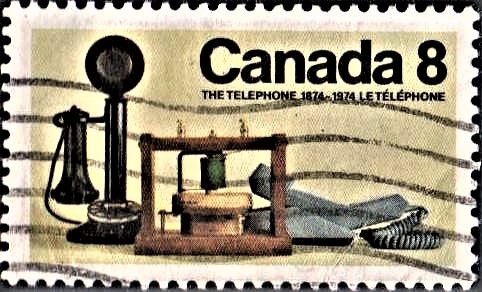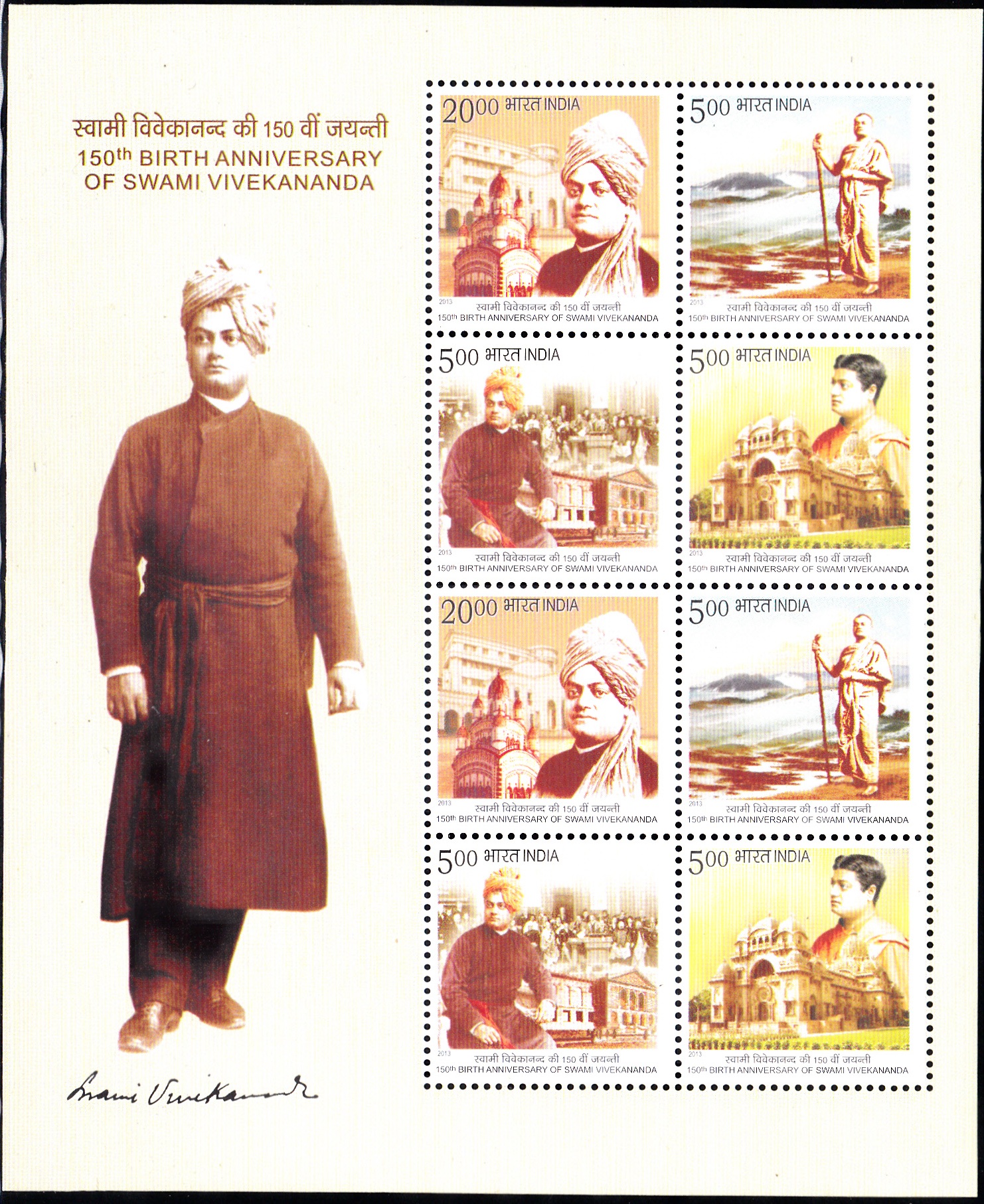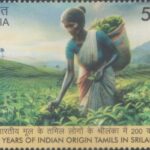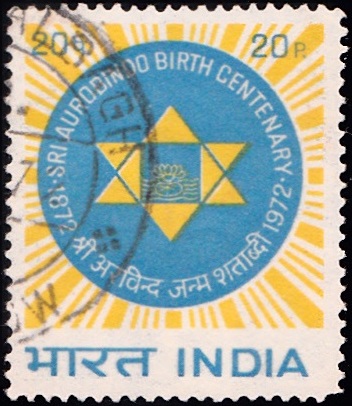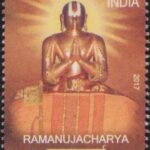
Vedanta Desikan
A commemorative postage stamp on the 750th anniversary of Swami Sri Vedanta Desika, a Sri Vaishnava guru and philosopher of Sri Vaishnavism in post-Ramanuja period :
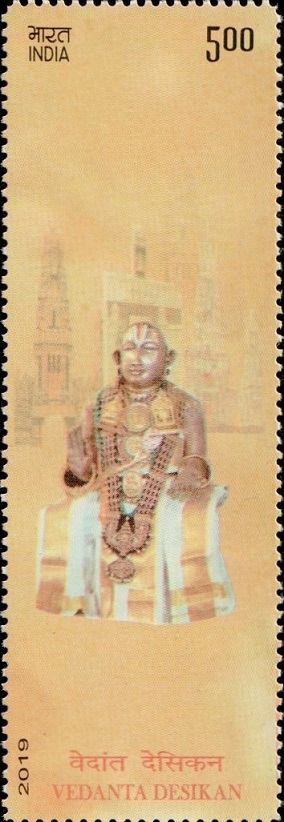
 Issued by India
Issued by India
Issued on May 2, 2019
Issued for : Department of Posts is pleased to issue a Commemorative Postage Stamp on Vedanta Desikan.
Credits :
Stamp/FDC/Brochure : Smt. Vinita Sinha
Cancellation Cachet : Smt. Alka Sharma
Type : Stamp, Mint Condition
Colour : Multi Colour
Denomination : 500 Paise
Stamps Printed : 600500
Printing Process : Wet Offset
Printer : India Security Press, Nashik
Name : Venkatanathan Desika
Born on 1268 CE at Thoopul (Thiruthanka) [now in Kanchipuram district, Tamil Nadu, India]
Died on 1369 CE at Srirangam, Tamil Nadu, India
About :
- Vedanta Desikan was a renowned poet, philosopher and a logician. He taught that everyone can easily attain salvation by following the practical path of prappatti, the way of loving surrender and service. His in-depth understanding of even the rival schools of philosophical thought made him a unique polymath.
- Vedanta Desikan contributed to Tamil and Sanskrit literature. His works are Stotras (Devotional Poems), Vedanta Granthas, Vyaakhyaana Granthas (Commentaries), Rahasya Granthas (Esoteric Works), Kavya Granthas, drama that revealed his ingenuity, creativity, logic, linguistic expertise, devotional fervour and erudite scholarship. In all, one hundred and seventy works have been attributed to Vedanta Desikan. He has been honoured with several titles like ‘Sarvatantraswatantra (Master of Everything)’, ‘Kavitharkika Simha (Lion among poets and logicians)’ and ‘Vedanthacharya (The Master of Vedanta)’. The term ‘Desika’ denotes Vedanta Desikan alone.
- Vedanta Desikan was born in 1268 A.D. in Thoopul, Kancheepuram (Tamil Nadu). His parents were Anantasuri and Todaramba. Anantasuri was one of the seventy-four simhasanadhipatis appointed by Sri Ramanuja to spread the message of his philosophy. Anantasuri and Todaramba were childless even after many years of marriage. They went to Tirumala during Brahmotsava and prayed to Lord Venkateswara for progeny. One night, Todaramba had a divine dream in which she swallowed the bell used in the worship of the Lord. She narrated this incident to her husband the next morning. At the same time, the bell in the sanctum sanctorum was found missing. The priests and scholars deduced that the divine bell was going to incarnate from the womb of Todaramba.
- The next year, on the day of the Teerthavaari of Lord Venkateswara – Purattasi Sravanam, Todaramba gave birth to a male child. The child was named as Venkatanatha and later revered as Vedanta Desikan. Vedanta Desikan is considered an avatar (incarnation) of the divine Bell of Lord Sri Venkateswara of Tirumala Tirupati.
- Vedanta Desikan grew up as a prodigy. When he was seven, Kidambi Appullar accepted Venkatanatha as his disciple and taught him arts, science and scriptures. By the age of 20, he became famous for his mastery over poetry, logic, linguistics, science, Vedanta, debate and allied arts. At the age of 21, Desikan got married to Thirumangai also known as Kanakavalli. His uncle also taught him the Garuda mantra which he chanted at Oushadhagiri at Thiruvahindrapuram (near Cuddalore). Garuda gave darshan and taught him the Hayagreeva mantra. He recited that mantra and received the blessings of Lord Hayagreeva.
- Some scholars had challenged Desikan to compose 1000 hymns in one day. Desikan accepted that and composed 1008 hymns on the Divine Feet (padhukas) of Lord Ranganatha of Srirangam within a short span of four hours. This work titled Padukasahasram is full of sonorous and charming poetry in praise of the divine feet of the Lord. He was also master of many other skills including carving sculptures.
- Vedanta Desikan lived a humble life with his wife. He undertook a vow called uchhavritti – accepting alms for daily sustenance from his disciples without actively seeking them. Desikan stayed in several cities throughout his life such as Thiruvahindrapuram, Kancheepuram, Srirangam, Tirupati and Melkote. He also travelled widely all over India on foot. He lived for 101 years and left for his heavenly abode in 1369 A.D.
- Text : Based on information received from the proponent.
Subscribe
Login
0 Comments
Oldest



